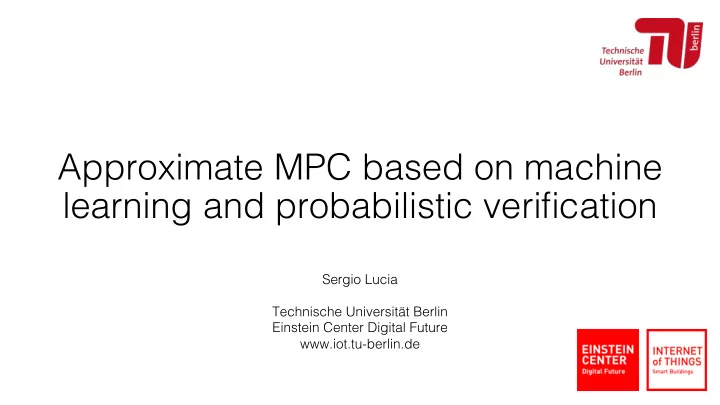

Approximate MPC based on machine learning and probabilistic verification Sergio Lucia Technische Universität Berlin Einstein Center Digital Future www.iot.tu-berlin.de
Motivation Solving NMPC problems in real time is still challenging: • For very fast systems • On low-cost embedded hardware Even more challenging in the case of robust st NMPC • Go Goal: : Development of an approach that simultaneously • Obtains approximate optimal robust solutions • Has small memory footprint • Can be rapidly evaluated on an embedded device 2
Explicit MPC in the linear case The MPC control law for LTI systems is a piecewise se-af affine ne funct unction on • Depends only on the current state (and possibly parameters) • Can be offline precomputed and stored Each region is described by a polyhedron: [A. Bemporad, M Morari, V. Dua, E.N. Pistikopoulos, 2002] 3
Reducing complexity of explicit MPC • Optimal representations: • Merging of regions with same feedback law • Lattice representation • Suboptimal approximations: • Trade-off between complexity reduction and performance • Simplicial partitions • Neural networks [T. A. Johannsen, A. Bemporad, F. Borrelli, C. Jones, M. Morari, M. Kvanisca and others] 4
Using neural networks to approximate MPC It is an old idea: already done in 1995 for nonlinear MPC • What is new? Common practice until recent successes in deep learning was: • Because of unive versa sal approxi ximation theorem : use only 1 layer What are the possible adva vantages s of deep learning for approximating complex MPC laws? [T. Parisini and R. Zoppoli, 1995, Akesson and Toivonen, 2006] 5
Recommend
More recommend